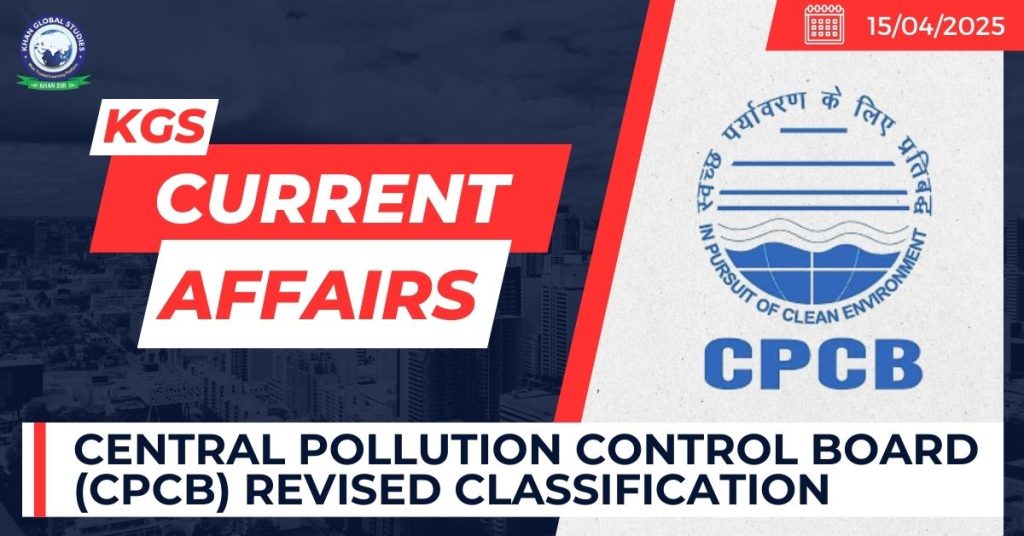Context:
The Central Pollution Control Board (CPCB) has directed State Pollution Control Boards (SPCBs) to adopt a revised industrial classification system under a new “Blue category”.
Introduction of Blue Category for Essential Environmental Services (EES)
The “Blue” category, introduced by the Central Pollution Control Board (CPCB), specifically addresses Essential Environmental Services (EES) needed for managing anthropogenic pollution.
- This includes activities like landfill maintenance, biomining, and the disposal of domestic or household waste that could otherwise lead to significant littering.
The Blue category aims to distinguish these services, which are crucial for preventing, controlling, and abating pollution, from other industrial sectors.
Extended Consent Validity: Industries under the Blue Category as an incentive for the essential services will receive an additional two years of validity for their Consent to Operate (CTO) compared to similar categories based on the Pollution Index (PI).
Eligibility Criteria: The Blue Category includes:
- Waste-to-energy plants
- Compressed Biogas (CBG) plants:
- Plants using feedstock like municipal solid waste, agro-residues, energy crops, grass, weeds, animal waste, press mud, and other non-industrial feedstock—while generating wastewater of 50 KLD or more.
- Plants using the same feedstock but generating less than 50 KLD of wastewater.
- Plants that do not discharge any wastewater and use non-industrial feedstock, while producing by-products such as Fermented Organic Manure (FOM), Liquid Fermented Organic Manure (LFOM), enriched manure, or briquettes or pellets using fuel.
Exclusions: CBG plants using industrial/process waste as feedstock will remain in the Red Category due to their higher pollution potential. The consent validity of red category industries is five years.
Incentives for Environmental Performance: Industries demonstrating verified implementation of environmental management measures are eligible for incentives, mainly in the form of extended permit validity.
Precautionary Principle: The revised classification methodology is grounded in the precautionary principle, emphasizing pollution potential rather than only current impact.
About the Central Pollution Control Board (CPCB)
It, a statutory organisation, was constituted in September 1974 under the Water (Prevention and Control of Pollution) Act, 1974.
Later, it was also entrusted with the powers and functions under the Air (Prevention and Control of Pollution) Act, 1981.
- CPCB implements the National Ambient Air Quality Monitoring Programme (NAMP) under this Act to collect, compile, and disseminate information on air quality.
It serves as a field formation and provides technical services to the Ministry of Environment and Forests under the provisions of the Environment (Protection) Act of 1986.

